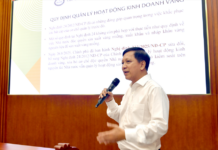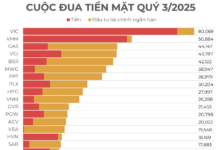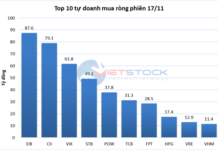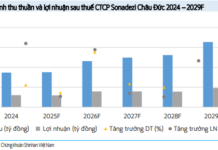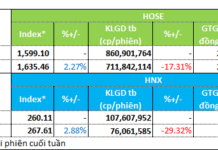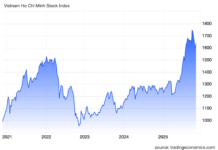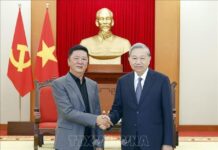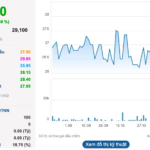On September 11, the Private Economic Development Research Board (Board IV) unveiled the Vietnam Private Economic Landscape Model (ViPEL), one of four key tasks assigned by the Prime Minister to foster comprehensive connectivity between the private sector and the government.
During the specialized session of Committee II on the morning of September 29, Ms. Phạm Thị Ngọc Thủy, Director of the Board IV Office, presented the vision of “Public-Private Nation-Building”—a core model within ViPEL. This innovative approach shifts from “individual efforts” to “collective action,” aiming to elevate the private sector’s role in national development. “Neither the government nor private enterprises can achieve everything alone. However, by collaborating, Vietnam can unlock new competitive advantages,” she emphasized.
According to Ms. Thủy, ViPEL is not merely a report or event but the culmination of dozens of consultations among business leaders and industry experts. Its core idea is to establish a novel mechanism unprecedented in Vietnamese law. Unlike traditional PPP models limited to capital-recovering infrastructure projects, “Public-Private Nation-Building” enables both parties to jointly define goals, resources, and responsibilities from the outset, ensuring transparency and shared oversight to prevent vested interests.
“Previously, we were accustomed to PPPs, primarily for infrastructure where both parties invest and businesses recover capital contractually. However, this falls short of the envisioned “Public-Private Nation-Building,” which seeks deeper collaboration with shared accountability and benefits from the beginning,” she explained.

Ms. Phạm Thị Ngọc Thủy presents the “Public-Private Nation-Building” model on September 29 – Photo: Tử Kính
|
Beyond transparency and shared responsibility, ViPEL embodies 10 new values: Board IV acts as a specialized public-private bridge; shifts mindset from “individual efforts” to “co-creation”; aligns with Resolution 68 implementation; operates at national, local, and community levels to engage businesses of all scales; ensures continuous operation; enables direct oversight; inspires national commitment; honors outstanding businesses and localities; and connects resources, including the Private Economic Development Fund per the Prime Minister’s directive.
ViPEL introduces a rapid action framework with the ViPEL 20 – 200 – 2000 project portfolio. ViPEL 20 focuses on national strategies/projects in infrastructure, critical industries, breakthrough technologies, core capacity enhancement, and value chain shaping. ViPEL 200 targets local projects addressing infrastructure, logistics, workforce bottlenecks, and regional development connectivity. ViPEL 2000 encompasses grassroots initiatives for job creation, livelihood improvement, sustainable business models, and community impact. This design fosters seamless linkages: local and grassroots projects align with national priorities while offering independent opportunities for diverse businesses.
To ensure effectiveness, ViPEL adopts the “Flying Geese” model, where large enterprises lead and empower SMEs to join value chains. The Business Confidence Index (CEOCI) channels private sector feedback directly to the Prime Minister for swift issue resolution. Notably, private enterprises now actively participate in designing, monitoring, and evaluating public-private partnerships.
Organizationally, ViPEL operates under a Steering Council comprising leaders of major corporations and four specialized committees. Each committee focuses on critical sectors, from emerging tech and infrastructure to logistics, renewable energy, manufacturing, workforce development, retail, e-commerce, tourism, and healthcare. The committees’ leadership includes prominent figures such as Mr. Trương Gia Bình (FPT), Ms. Nguyễn Thị Phương Thảo (Sovico), Mr. Don Lam (VinaCapital), Mr. Vũ Văn Tiền (Geleximco), and Ms. Cao Thị Ngọc Dung (PNJ), ensuring representation across private sectors.
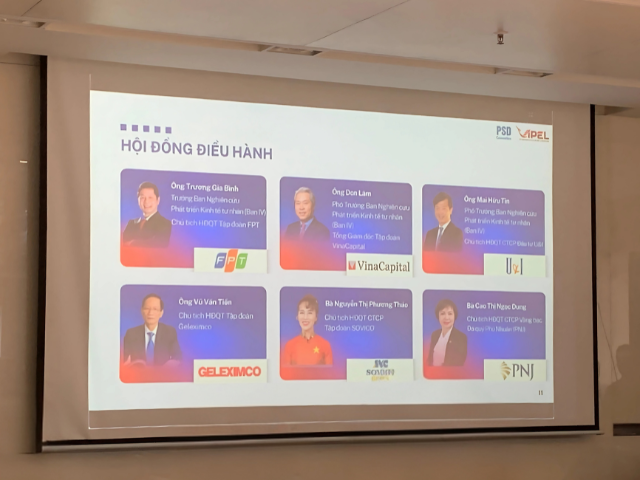
ViPEL’s Steering Council unites veteran leaders of the private sector – Photo: Tử Kính
|
ViPEL’s activities are ongoing: committees and working groups assess sector potential, formulate strategies, and execute flagship projects. The annual “Private Economic Landscape” program evaluates the private sector, hosts high-level public-private dialogues, honors exemplary entrepreneurs and localities, and fosters international connections.
Ms. Thủy highlighted three shared commitments: intellectual engagement—requiring vision and active participation; time—as this is a long-term, continuous process; and financial commitment—to sustain oversight, coordination, and impact measurement. This convergence generates the momentum needed to transform Central resolutions like Resolution 68 into tangible outcomes.
On October 10, the inaugural ViPEL program will launch in Hanoi. Morning sessions will feature committee engagements with public-private partners and state agencies, followed by an official afternoon presentation to senior leaders with concrete action pledges. This event is expected to solidify “Public-Private Nation-Building” as an operational reality, paving the way for a transparent, efficient framework.
ViPEL’s long-term goal is to empower private enterprises in national development while promoting social values like community healthcare, welfare, and regional connectivity. With this vision, “Public-Private Nation-Building” addresses immediate challenges while laying the foundation for enduring, sustainable cooperation, propelling Vietnam toward prosperity and strength.
Defining Criteria for Flagship Projects in “Public-Private Nation-Building”
– 14:17 30/09/2025










